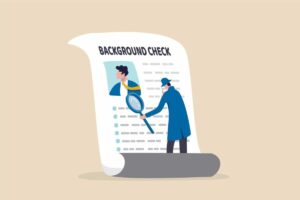The Texas Real Estate Commission (TREC) licenses and regulates various real estate professionals, including real estate inspectors. As a result, TREC must ensure that these professionals follow all applicable laws and rules. Any violations by real estate inspectors can lead to disciplinary proceedings and potentially severe sanctions. As a result, all real estate inspectors must be knowledgeable about and follow the laws and rules that govern their profession.
If you face disciplinary proceedings before TREC, consulting a real estate inspector license defense lawyer to defend your license can be crucial. By enlisting a strong legal advocate from the outset of your case, you may be better positioned to reach a more positive resolution.
Common Violations by Real Estate Inspectors in Texas
Disciplinary cases before TREC involving real estate inspectors are relatively rare. For example, of the 6,307 enforcement cases TREC opened in 2023, only 86 involved real estate inspectors. Nonetheless, real estate inspectors should be aware of some of the most common situations that may lead to disciplinary complaints and enforcement actions by TREC. These situations include the following:
- Using the incorrect report form.
- Performing a real estate inspection without a valid or active license.
- Failing to register a business name.
- Engaging in false or misleading advertising in violation of TREC rules.
- Failing to include in an inspection report why a system or a component was not inspected.
- Failing to include a deficiency in an inspection report.
- Completing an inspection in a negligent or incompetent manner.
- Failure to include a required element of an inspection report, including:
- A written opinion as to foundation performance;
- A vantage point from which a crawlspace was inspected; or
- Evidence of water penetration.
Avoiding TREC Complaints and Disciplinary Proceedings
Real estate inspectors should always remain professional, civil, and kind to consumers. A real estate inspection can be an emotional process. Therefore, kindness can go a long way toward avoiding a complaint.
Click to contact our professional license defense lawyers today
Obtaining all necessary training, education, and experience to perform an inspection adequately can also help avoid complaints. Consumers are more likely to be satisfied with competent inspectors who thoroughly and professionally complete their jobs. Producing clear, easily understandable inspection reports can also help avoid confusion and misunderstanding that might lead to complaints.
Complete a Case Evaluation form now
Keep good records concerning the inspections that you perform. TREC can investigate complaints filed within four years of an inspection’s completion. As a result, inspectors should keep all inspection records for at least four years, including correspondence, bills, pictures, and the inspection report. These records can also be helpful evidence if someone files a complaint with TREC.
Finally, inspectors should be cautious about leaving the property in the same condition that they found it. Making a mess or worsening conditions also can lead to unwanted complaints.
Responding to Complaints Before TREC
When TREC receives a complaint against a real estate inspector, an initial investigation ensues. TREC will notify the inspector of the investigation. The inspector should make every effort to cooperate with the investigation, respond to the complaint, and provide any requested records and documents. To the extent that the inspector has taken any corrective action in response to the complaint, the inspector also can share that informant with TREC.
Once the investigation is complete, a staff attorney reviews the complaint and investigation report to determine whether a violation of an applicable rule or law has occurred. One of the three potential dispositions of the complaint will occur, subject to approval by the division director:
- No Disciplinary Action – lack of jurisdiction, no finding of a violation, or insufficient evidence of a violation;
- Informal Disciplinary Action – advisory or warning letter to the licensee based on areas of concern, which remains in the licensee’s file for ten years and may be used in future disciplinary proceedings; or
- Formal Disciplinary Action – evidence of a violation may result in a formal disciplinary action, which may consist of:
- Reprimand;
- License or Certificate Suspension (probated or not);
- License or Certificate Revocation (probated or not); and/or
- Administrative Penalties, the amount of which is based on:
- The seriousness of the violation, including the nature, circumstances, extent, and gravity of the prohibited acts;
- The history of previous violations;
- The amount necessary to deter a future violation;
- Efforts to correct the violation; and
- Any other matter that justice may require.
TREC has also adopted a schedule of administrative penalties under §531.191. Based on the violation, this schedule contains three penalty ranges: $100 – $1,500, $500 – $3,000, and $1,000 – $5,000.
Grounds for License Suspension or Revocation
Tex. Occ. Code §1101.652 outlines a lengthy list of grounds for which TREC may suspend or revoke a real estate inspector’s license. These grounds include:
- Conviction of a felony or a criminal offense involving fraud;
- Failure to provide TREC with the information requested within a reasonable time relating to a complaint;
- Failure to surrender a document or instrument requested by an owner that is in the inspector’s possession within a reasonable amount of time;
- Misrepresentation, dishonesty, or fraud when selling, buying, trading, or leasing real property; or
- Engages in misleading advertising.
We Will Represent Your Interests Before TREC
We know how important it is for you to maintain your real estate inspector’s license and work in your chosen field. All too often, a simple misstep or oversight can lead to disciplinary proceedings and unwanted sanctions, which can threaten your license and career. The experienced real estate inspector license defense attorneys at Bertolino LLP will advocate to help you protect your rights throughout any disciplinary proceedings. Together, we will work to develop the defense strategy that is best calculated to maintain your license and professional future. Call us at (512) 515-9518 or contact us online.
Call or text (512) 476-5757 or complete a Case Evaluation form






